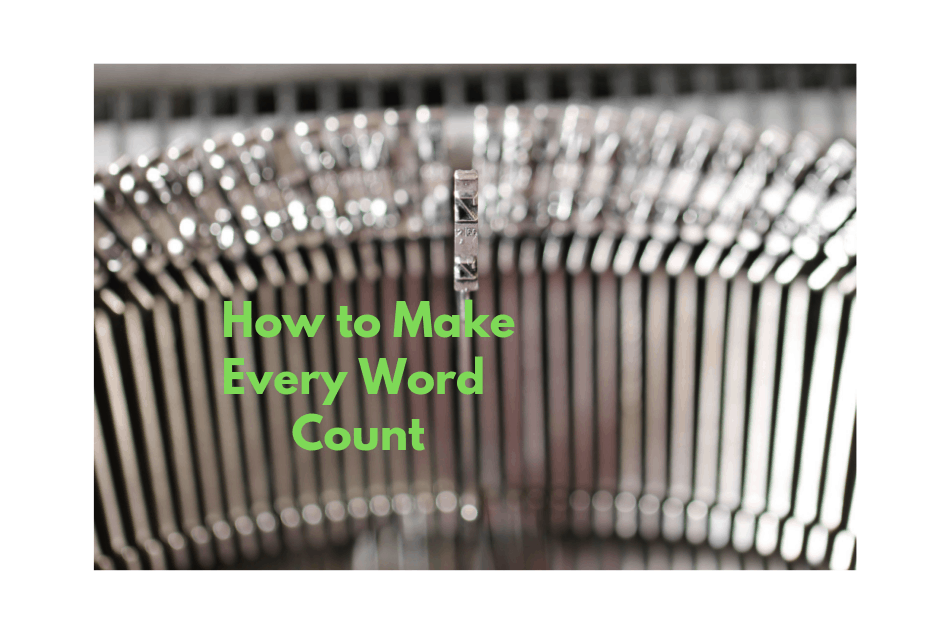A new writer had asked me to read a first chapter. Sure, happy to. But as I read this author’s perfectly good story, I began to see the places where words were wasted.
Not that there were too many words. But that the words were chosen–let’s put it this way. The words were not chosen. Not with a clear intent.
A tenet for authors: Every word counts.
We know this, don’t we? And since each word counts, matters, makes a difference, why do we not always focus on how much work a single word can do?
For instance. This author had a character who’d moved into a new apartment in Florida, and was using a wooden crate as a coffee table.
What kind of a crate, I asked? The author shrugged. An apple crate, I suppose, she said.
Why is it an a apple crate, I wondered? Were they from a place that had apples? Did the person bring the crate with them, is it nostalgic, or meaningful? No the author said. It’s just an apple crate.
Is this person in financial straits, is that why they were using an apple crate?
No, the person said they’re shabby chic, and they found an apple crate discarded on the street.
In Florida? I asked. Did they think that was weird?
By this time, the author was probably thinking that I was weird.
But you see how much difference a coffee table could make? If a person is moving into their new apartment, and they have a coffee table, why not make the coffee table have some meaning? The marble and carved mahogany table their grandmother left them in her will. A Noguchi glass triangle. An old barn door on two sawhorses. Or–an apple crate. Why? Every choice you make for your character reflects some decision that character has made. And that’s an insight to their soul.
Does your character have a dog? What kind of a dog? It’s not a dog. It’s a poodle. It’s an Irish Wolfhound. Different. Named Suzie. Or Beast. Different.
Is your character wearing a sweatshirt? Is it old, new, shabby, frayed, have they slashed the neck out, or cut off the sleeves? Does it have an athletic team or a slogan?
Does their silverware match? Where did they get their dinner plates?
Everybody instructs writers to ask– and you will hear it over and over–what’s in their refrigerator? What is in their wastebasket? That’s another way to illustrate your character without saying something clunky like: they always watched their diet. Or: They were very tidy. Those specific things matter. Those things are author shorthand you can use to let the reader know the inside scoop about your character–without you having to say so.
Do they have a Prius? An Audi? A vintage El Dorado? A souped-up Mustang? Can they even drive? Stick shift? The most mundane activities and possessions can telegraph to your readers the backstory and personality of your character.
Do they hang up their clothes on satin padded hangers, or throw their stuff on the bed? Are their spices in alphabetical order? Do they have a Roomba?
The more specific you can be, most often the better. And the joy of it is that often it does not add any more words.
The more specific you can be, the more your story comes to life. You don’t need to explain it, since these kinds of things not only instantly illustrate your character, but can but set the scene in a far more visual way.
As always, don’t go overboard. Every single item does not have to have philosophical depth or clues to your character‘s personality. But think about specificity. Think about a Cadillac instead of a car. Think about a rescue Lab instead of a dog. Think about a flowered Limoges platter instead of a plate. See how instantly your mind creates a picture?
Then your readers will say: I could just see that! Or: I completely understood your character. When you discard the generics–words like “person,” and “thing,” and “place”–and go for specifics, that’s when your words are truly working.
How have you made specificity work for you? Let’s talk about it on the Career Authors Facebook page. And then—get writing.





